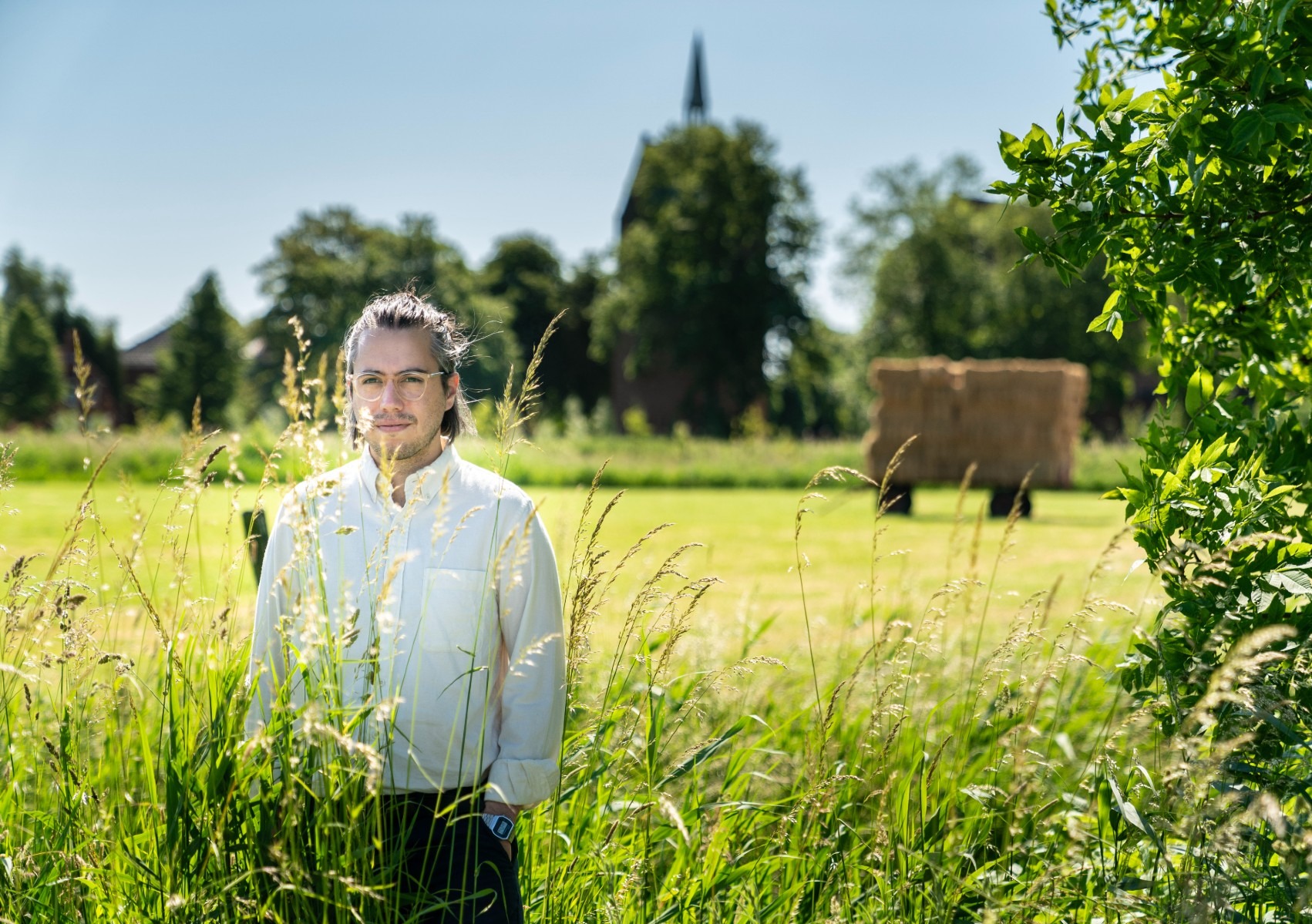Gas extraction in Groningen: recovering from a fiasco
Gas extraction in the province of Groningen has led to damaged relations between all relevant stakeholders. Agustin De Julio Pardo explores ways to reconcile the various groups and restore trust between them.
Text: Agustin De Julio Pardo / Photography: Reyer Boxem
I started my PhD research project in 2021 at the Kennisplatform Leefbaar en Kansrijk Groningen (Knowledge Platform) — an institute within the University of Groningen that studies the social impact of gas extraction in the province of Groningen. My task is to zoom in on one of the many knock-on effects of gas extraction: the damaged relationships between all relevant stakeholders. The main objective of my research is to explore ways in which these actors can be reconciled, and trust between them can be rebuilt. The start of the Parliamentary Inquiry hearings in 2021 offered a unique opportunity for this investigation.

Groningen and the Parliamentary Inquiry
‘Sixty years of gas extraction has greatly benefited the Netherlands, but for the affected Groningen residents, it had a dark side’. With these words, the chairman of the Parliamentary Committee of Inquiry into Natural Gas Extraction in Groningen (PEGAS), Tom van der Lee, opened the 69 hearings of the Inquiry. By now, most people are familiar with the story of how gas extraction in the province of Groningen turned from an economic miracle to a nightmare through decades of induced seismicity and poor policy responses.
The gas extraction fiasco led to a Parliamentary Inquiry, the most serious mechanism the Dutch Parliament has for investigating policy failure. The PEGAS was the most comprehensive inquiry in Dutch history. It produced a 1959-page report and covered over 60 years in its historical reconstruction. Here are some of its main conclusions: The reality as experienced by the policy makers and by the residents was irreconcilably different. The damage compensation procedures and reinforcement procedures were ineffective and damaged the life of Groningen residents. The local and regional governments were unable to adequately represent the interests of the Groningen residents. Government and industry were unhealthily close during the case. And most importantly, financial gain was dominant in policymaking and the interests of the Groningen residents were structurally ignored.
Parliamentary Inquiries like this one are a quintessentially Dutch legal mechanism. However, theory suggests that these inquiries have a lot in common with international Truth and Reconciliation Commissions (TRCs), despite their differences in scope and legal bases. How are they similar? And can the PEGAS bring about reconciliation in Groningen?
Truth and reconciliation
Transitional justice is the discipline that studies how to ease transitions from old to new systems after traumatic societal events. Within this discipline, Truth and Reconciliation Commissions play a key part. Does the term sound familiar? You may remember Archbishop Desmond Tutu’s Commission as South Africa was transitioning out of Apartheid. Or the many commissions following periods of dictatorship in Latin America. Despite their differences, we can see that the role and scope of the PEGAS and these commissions bear many similarities.
These commissions aim to provide an authoritative account of the history of a case. They combine many accounts and lived experiences into a single narrative. They determine what is worth mentioning and what is not. They allocate guilt and present a report of their findings. The hope is that when TRCs fulfil these roles, parties that cannot see eye to eye can begin to coexist and cooperate once again.
At the Knowledge Platform, we are running a national longitudinal survey to find out what the effects of the PEGAS report are on reconciliation between groups. This study allows us to investigate to what extent this Commission has functioned as a TRC, and whether in Groningen, fact finding did contribute to bringing groups together.

Paths to harmony
Following the conclusion of the PEGAS study, there are a few more mechanisms within transitional justice I would like to take a look at. One of them is how compensation efforts work. How successful will the governmental response to the Report, the plan called Nij Begun, be? Can you compensate for suffering through general common-good projects like making Groningen the energy capital of the country, or building a hydrogen plant in the Eemshaven? (hint: this is debatable).
Another concept arising from the transitional justice playbook is memorialization: how societies collectively remember traumatic events. There are already a few projects around this, like the EPIQ museum in Loppersum or the Groningen gallery at the Museum aan de A. As the people who suffered the consequences of gas extraction get older, how can we keep their experiences and memories alive? What do we want to pass on to our children concerning the gas extraction fiasco in Groningen?
Wonderlaand - Stories from Groningen
My relationship with Groningen and gas did not begin on the first day of my PhD project. I have followed the case starting roughly from 2016, out of curiosity for my new city and province. In the course of this kind of journey one picks up a lot of information, meets a lot of people, and hears many stories. Sadly not everything I picked up fits easily into a scientific paper. But this does not make it any less interesting or valuable.
Once I started working at the Knowledge Platform, I met Hannah Porada, a fellow PhD candidate studying the case of Groningen at the UvA. Both of us wanted to give a place to all the non-empirical knowledge we had gathered in our time here, and that is how the Wonderlaand podcast was born. In Wonderlaand we share stories about Groningen’s culture and history in an informal, non-scientific way, with experts from all walks of life on topics such as psychology, music, the local dialect, history, and much more.
Contact
More news
-
20 January 2026
Alcohol, texting, and e-bikes
-
13 January 2026
Lonneke Lenferink joins The Young Academy
-
08 December 2025
Citizen participation essential for a sustainable energy future
